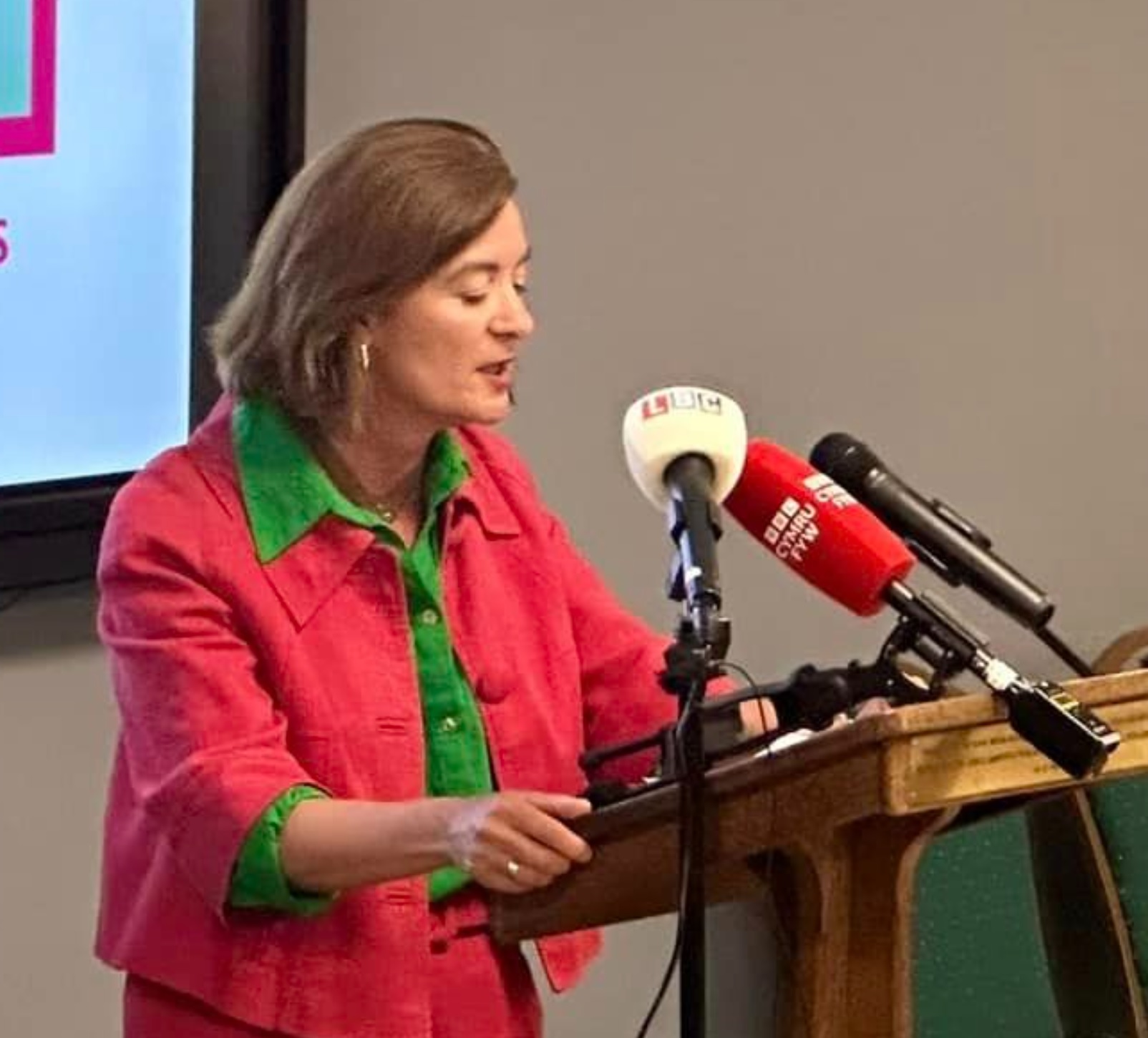Business
Businesses’ Brexit fears dismissed

THE RECENT conduct of Foreign Secretary Boris Johnson has led to fears that the future of the UK’s business relationships with Europe are of secondary interest to senior government ministers.
A strongly-worded statement from the CBI, warning policy makers to ‘focus on business priorities and put evidence above political ideology’ was greeted with Mr Johnson remarking ‘f**k business’.
Those remarks were preceded by the Foreign Secretary being recorded saying that the border with Ireland was a minor issue of little consequence in the context of Brexit.
The CBI subsequently suggested that it will ensure negotiators on both sides ‘are well equipped with the unequivocal economic facts’.
Whether the facts fit the Foreign Secretary’s preconceptions of what Brexit might mean for the UK’s businesses is open to question.
AIRBUS RAISES STAKES
A similar gap between reality and ideology was exposed by the warning from Airbus that – in order to continue to comply with the European regulatory framework – it might have to move its base of operations from Broughton in Clwyd, where it supports 6,500 directly employed jobs and businesses and the economy over a much wider area.
In the absence of a Brexit agreement, UK aerospace companies will not be covered by existing approvals. More than 10,000 original aircraft parts originate in the UK, the manufacture of which is covered by tight regulations requiring certification by the European Aviation Safety Agency. Should a single parts supplier not be certified, its parts cannot be installed and aircraft will not be delivered.
If a supply chain agreement is not reached with the EU, the consequences for the aviation industry selling into the EU trading bloc will be a disaster for the UK.
BUSINESSES TOLD TO BUTT OUT
However, the unwelcome intervention of facts in the Brexit narrative roused Health Secretary Jeremy Hunt to tell the BBC’s Andrew Marr that talking about job losses risked undermining the government in its negotiations with the EU.
“It was completely inappropriate for businesses to be making these kinds of threats, for one simple reason. We are in a critical moment in the Brexit discussions. We need to get behind Theresa May to deliver the best possible Brexit, a clean Brexit.”
Mr Hunt’s comments were supported by leading Brexit enthusiast Liam Fox, the Secretary of State for International Trade, who also suggested that businesses warning the government based on their own detailed knowledge of the regulatory regimes under which they work were somehow placing the UK Government’s negotiating position – which is as yet both unknown and possibly undetermined – at risk.
The key economic issue for businesses is ensuring the sort of continuity in trading arrangements which secures jobs and encourages investment. Large businesses need a significant amount of time to make decisions on the allocation of resources, particularly in the face of unpredictable trade policy by twitter approach of the US Government. Short of certainty, and faced with a capricious transatlantic trading partner which scraps trade agreements and treaties at short or no notice, businesses are understandably twitchy about their inability to plan and the absence of meaningful interaction with them by the UK Government’s crack Brexit team.
In a carefully-phrased statement to MPs, Business Secretary Greg Clark told MPs: “Any company and any industry that supports the livelihoods of so many working people in this country is entitled to be listened to with respect.
“The government has been clear that we are determined to secure a deal with the EU that meets the needs of our aerospace firms and the thousands of people whose livelihoods depend on them.”
IRISH TRADE KEY FOR WEST WALES
Meanwhile, businesses have struck back at the apparent indifference of the UK Government’s key Brexit ministers to the interests of businesses which stand to be affected directly should the UK reach no regulatory deal – or a poor regulatory deal – with the EU.
Business groups the CBI, Chambers of Commerce, Federation of Small Business, the Employers’ Federation, and the Institute of Directors are placing pressure on the government to reach agreement on trade, customs, and immigration.
Pembrokeshire’s MPs, Simon Hart in Carmarthen West and South Pembrokeshire and Stephen Crabb in Preseli Pembrokeshire, are in an intriguing position over the issue of Irish trade.
With major ferry ports in Pembroke Dock and Fishguard, both Conservatives have a dog in the race to ensure that trade with the Republic of Ireland is at least maintained at current levels.
100,000 lorries were carried to Ireland via ports in Pembrokeshire in 2015. Any disruption of that trade, by the introduction of customs and immigration checks for example, would significantly reduce the attractiveness of west Wales’ ports to businesses trading with Ireland. That is not, however, a one way street. The Irish Government is also keen to maintain access to the UK as an access point to mainland Europe.
While the ports are not in themselves major employers, the ‘ripple effect’ of any loss or reduction in through traffic and any subsequent job losses could be significant. And concerns have been magnified by Stena’s decision to scrap a significant investment plan in Fishguard.
When we asked to respond to the Foreign Secretary’s views on the Irish Border issue and the importance of trade with Ireland to Pembrokeshire, Simon Hart said: “I have spoken (very informally) to [Boris Johnson] to make that point, which he says he recognises. The border issue might be minor in the overall context of Brexit but it is nonetheless very important.”
Stephen Crabb told us: “I have said right from the start that the issues over trade between the UK and Ireland, including the question of the Northern Ireland border, are some of the most complex and important of the Brexit negotiations.
“For us in Pembrokeshire it is important because of our trade links with Rosslare and I have raised this matter with Ministers in Ireland, the Cabinet in Westminster. The commitment that the Prime Minister has given that there will be no additional trade barriers for East-West trade between the UK and Ireland is crucial and reflects the points that I and others have been putting to her.”
Business
Bid to convert office space into chocolate factory, salon and laundrette

A CALL for the retrospective conversion of office space previously connected to a Pembrokeshire car hire business to a chocolate factory, a beauty salon and a laundrette has been submitted to county planners
In an application to Pembrokeshire County Council, Mr M Williams, through agent Preseli Planning Ltd, sought retrospective permission for the subdivision of an office on land off Scotchwell Cottage, Cartlett, Haverfordwest into three units forming a chocolate manufacturing, a beauty salon, and a launderette, along with associated works.
A supporting statement said planning history at the site saw a 2018 application for the refurbishment of an existing office building and a change of use from oil depot offices to a hire car office and car/van storage yard, approved back in 2019.
For the chocolate manufacturing by ‘Pembrokeshire Chocolate company,’ as part of the latest scheme it said: “The operation comprises of manufacturing of handmade bespoke flavoured chocolate bars. Historically there was an element of counter sales but this has now ceased. The business sales comprise of online orders and the delivery of produce to local stockist. There are no counter sales from the premises.”
It said the beauty salon “offers treatments, nail services and hairdressing,” operating “on an appointment only basis, with the hairdresser element also offering a mobile service”. It said the third unit of the building functions as a commercial laundrette and ironing services known as ‘West Coast Laundry,’ which “predominantly provides services to holiday cottages, hotels and care homes”.
The statement added: “Beyond the unchanged access the site has parking provision for at least 12 vehicles and a turning area. The building now forms three units which employ two persons per unit. The 12 parking spaces, therefore, provide sufficient provision for staff.
“In terms of visiting members of the public the beauty salon operates on an appointment only basis and based on its small scale can only accommodate two customers at any one time. Therefore, ample parking provision exists to visitors.
“With regard to the chocolate manufacturing and commercial laundrette service these enterprises do not attract visitors but do attract the dropping off laundry and delivery of associated inputs. Drop off and collections associated with the laundry services tend to fall in line with holiday accommodation changeover days, for example Tuesday drop off and collections on the Thursday.
“With regard to the chocolate manufacturing ingredients are delivered by couriers and movements associated with this is also estimated at 10 vehicular movements per week.”
The application will be considered by county planners at a later date.
Business
First Minister criticised after ‘Netflix’ comment on struggling high streets

Government announces 15% support package but campaigners say costs still crushing hospitality
PUBS, cafés and restaurants across Wales will receive extra business rates relief — but ministers are facing criticism after comments suggesting people staying home watching Netflix are partly to blame for struggling high streets.
The Welsh Government has announced a 15% business rates discount for around 4,400 hospitality businesses in 2026-27, backed by up to £8 million in funding.
Announcing the package, Welsh Government Finance Secretary Mark Drakeford said: “Pubs, restaurants, cafés, bars, and live music venues are at the heart of communities across Wales. We know they are facing real pressures, from rising costs to changing consumer habits.
“This additional support will help around 4,400 businesses as they adapt to these challenges.”
The announcement came hours after Eluned Morgan suggested in Senedd discussions that changing lifestyles — including more time spent at home on streaming services — were contributing to falling footfall in town centres.
The remarks prompted political backlash.
Leader of the Welsh Liberal Democrats, Jane Dodds, said: “People are not willingly choosing Netflix over the high street. They are being forced indoors because prices keep rising and wages are not.
“Blaming people for staying at home is an insult to business owners who are working longer hours just to survive.”
Industry groups say the problem runs deeper than consumer behaviour.
The Campaign for Real Ale (CAMRA) welcomed the discount but warned it would not prevent closures.
Chris Charters, CAMRA Wales director, said: “15% off for a year is only the start. It won’t fix the unfair business rates system our pubs are being crushed by.
“Welsh publicans need a permanent solution, or doors will continue to close.”
Across Pembrokeshire, traders have repeatedly told The Herald that rising energy bills, wage pressures and rates — rather than a lack of willingness to go out — are keeping customers away.
Several town centres have seen growing numbers of empty units over the past year, with independent shops and hospitality venues reporting reduced footfall outside the main tourist season.
While ministers say the relief balances support with tight public finances, business groups are calling for wider and longer-term reform.
Further debate on rates changes is expected later this year.

Business
Pub rate relief welcomed but closures still feared

CAMRA warns one-year discount is only a sticking plaster as many Welsh locals face rising bills
A BUSINESS rates discount for Welsh pubs has been welcomed as a step in the right direction — but campaigners warn it will not be enough to stop more locals from shutting their doors.
The Campaign for Real Ale (CAMRA) says the Welsh Government’s decision to offer a 15 per cent reduction on business rates bills for the coming year will provide short-term breathing space for struggling publicans.
However, it believes the move fails to tackle deeper problems in the rating system that continue to pile pressure on community pubs across Wales, including in Pembrokeshire and Carmarthenshire.
Chris Charters, Director of CAMRA Wales, said: “Today’s announcement from the Finance Secretary that pubs will get 15% discount on their business rates bills is a welcome step.
“However, many pubs still face big hikes in their bills due to the rates revaluation which could still lead to more of our locals in Wales being forced to close for good.
“15% off for a year is only the start of supporting pubs with business rates. It won’t fix the unfair business rates system our pubs are being crushed by.”
He added: “Welsh publicans need a permanent solution, or doors will continue to close and communities will be shut away from these essential social hubs that help tackle loneliness and isolation.”
Mounting pressure on locals
Under plans announced by the Welsh Government, pubs will receive a temporary discount on their rates bills for the next financial year.
But CAMRA argues that many premises are simultaneously facing sharp increases following the latest revaluation, which recalculates rateable values based on property size and trading potential.
For some smaller, rural venues, especially those already operating on tight margins, the increases could wipe out the benefit of the relief entirely.
Publicans say they are also contending with rising energy costs, higher wages, supplier price hikes and changing customer habits since the pandemic.
In west Wales, several long-standing village pubs have either reduced their opening hours or put their businesses on the market in the past year, with landlords warning that overheads are becoming unsustainable.
Community role
Campaigners stress that the issue goes beyond beer sales.
Pubs are often described as the last remaining social spaces in small communities — hosting charity events, sports teams, live music and local groups.
In parts of rural Pembrokeshire, a pub can be the only public meeting place left after the loss of shops, banks and post offices.
CAMRA says supermarkets and online retailers enjoy structural advantages that traditional pubs cannot match, making it harder for locals to compete on price.
The organisation is now calling on ministers to introduce a permanently lower business rates multiplier for pubs, rather than relying on short-term discounts.
Long-term reform call
CAMRA wants whoever forms the next Welsh administration to commit to fundamental reform of the rating system, arguing that pubs should be recognised as community assets rather than treated like large commercial premises.
Without change, it warns, the number of closures is likely to accelerate.
Charters said: “This is about protecting the future of our locals. Once a pub shuts, it rarely reopens. We can’t afford to lose any more.”
For many communities across west Wales, the fear is simple: temporary relief may buy time — but it may not be enough to save the local.
-

 Health6 days ago
Health6 days agoConsultation reveals lack of public trust in health board
-

 Community7 days ago
Community7 days agoPembrokeshire students speak at national Holocaust Memorial Day event
-

 News1 day ago
News1 day agoPrincess of Wales visits historic Pembrokeshire woollen mill
-

 Crime5 days ago
Crime5 days agoPembroke man accused of child sex offences sent to Swansea Crown Court
-

 Education7 days ago
Education7 days ago‘Vulnerable teen’ questioned by police at Milford Haven School
-

 Education7 days ago
Education7 days agoAttendance concerns at Milford School reflect wider issue raised at the Senedd
-

 Community6 days ago
Community6 days agoCampaign to ‘save’ River Cleddau hits over 2,200 signatures
-

 Health3 days ago
Health3 days agoDoctor struck off after sexual misconduct findings at Withybush Hospital







































